Foreigners alarmed by Swiss expulsion vote
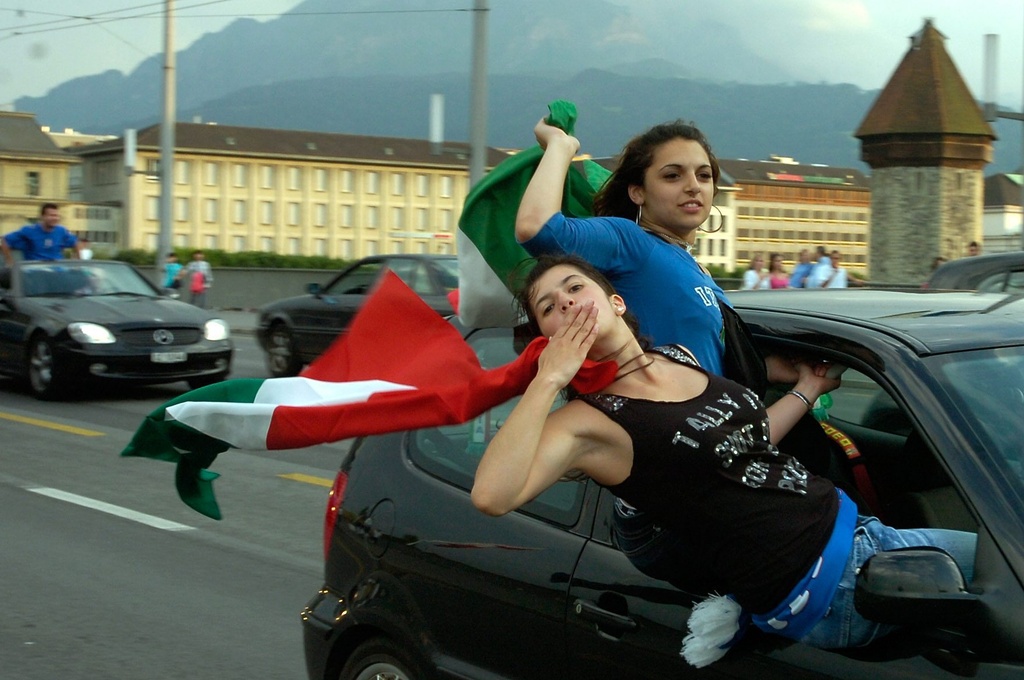
Swiss voters’ decision to adopt tough new regulations on the deportation of non-Swiss convicted of serious crimes has provoked widespread concern among foreigners.
On Sunday some 53 per cent of voters backed a rightwing initiative for the automatic expulsion of non-Swiss offenders convicted of crimes ranging from murder to breaking and entry and social security fraud.
By accepting the initiative the Swiss people have sent a clear signal that foreigners are basically undesirable and suspicious, the Second@s Plus organisation, which represents second- and third-generation foreigners, said in a statement.
“This is another sign that foreigners are tolerated but not respected,” Second@s Vice-president Ivica Petrusic told swissinfo.ch.
The People’s Party says immigrants to Switzerland are disproportionately responsible for crime but the figures are contested.
Second- and third-generation immigrants are exposed, as the children of immigrants do not automatically get Swiss citizenship, so the rule would mean sending some people who were born and brought up in Switzerland to countries they know nothing of. Convicts would serve their sentence in Switzerland first and then be deported without appeal.
“We’re creating more laws for different classes and subgroups of people. We’re contravening our own Constitution which says that we are all equal – this is the end of integration,” said Petrusic.
The rightwing Swiss People’s Party, which launched the proposal, was behind last year’s initiative that imposed a ban on the building of Islamic minarets.
Petrusic said he was extremely worried what the People’s Party may have up its sleeve: “This kind of strategy of fear works well. I’m concerned that they might try to introduce a way of taking people’s Swiss nationality away from them. If it continues in this direction, it’ll end badly.”
Foreigners in Switzerland made their voices heard on the internet. “The sad result shows that popular fear-mongering is stronger than healthy common sense,” “very distressing” “expected but not hoped for,” and “such initiatives only increase hatred and don’t get us anywhere” declared people on the “Nein, Nein” (no, no) campaign Facebook page.
Emotional reaction
José Raimundo Insúa Méndez, secretary of a Bern-based service for Spanish immigrants, said there was “lots of concern” among younger Spanish immigrants who may have been born in Switzerland and lived here all their lives without applying for Swiss nationality.
“It’s a very dangerous step,” he said. “Direct democracy is fantastic, but in recent years people are voting in a very instinctive way without reason. This is not normal.”
Paolo Da Costa, president of Comites Zurigo, an Italian government-backed organisation for Italians living abroad, agreed the vote had been an “emotional reaction”.
“We are upset by the vote,” he said. “We understand what the Swiss want, but this isn’t the solution. “
Tidiane Diouwara, president of the Forum des Etrangers in Lausanne, said members of the 52 foreigner associations he represented had expressed their “indignation” and “disbelief” about the deportation vote, which was “a threat to peace”.
“Foreigners make up 20 per cent of the population and they are largely integrated; where will this machine stop,” he commented, adding that in the future political parties and foreigner groups had to do a better job of explaining such votes to people.
Implementation
Bashkim Iseni, a 39-year-old political scientist from Lausanne University, said the vote was “regrettable” and underlined other political parties’ failures to cope with the People’s Party’s winning “anti-foreigner” strategy.
“There are problems of integration,” said Iseni, who was born in Macedonia to Kosovar parents, but grew up in Switzerland. “But denouncing foreign criminals is the wrong approach.”
But not everyone was unhappy with Sunday’s result.
“I think it’s good,” said Ferhat Aydin, who heads the Turkish association of the small town of Monthey in canton Valais.
“I would have voted the same. People need to adapt in the best possible way to a country. That’s the best thing for the country they are in and for the country they’ve come from. People who don’t integrate, particularly in the sense where one becomes aggressive and criminal, should be punished.”
One major unanswered question is how the vote will be implemented.
“We hope that when it is translated in detail into law, they will make sure it doesn’t become automatic, particularly with regard to the secondos, for whom Switzerland is their home – their only home – that they make sure that they keep some kind of proportionality,” Petrusic told Swiss national radio.
Kahraman Tunaboylu, president of the Swiss-Turkish association, was not too concerned, however.
“I don’t see it as tricky. The other half of the population does not agree with this result… there’s an emotional mood which was exploited by those who initiated it. I think [Justice Minister] Simonetta Sommaruga will deal with this correctly.”
The gfs.bern polling institute said that the widest acceptance of the tougher regulations on foreign residents committing crimes were not in places with large immigrant populations.
In a report commissioned by Swiss public television, gfs.bern said typical yes voters live in largely conservative regions, often in the countryside in German and Italian-speaking areas.
In this part of Switzerland, gfs.bern said, the Swiss would like to maintain privileges.
Surprisingly, voters in cities like Basel and Geneva with the highest immigrant populations were more likely to reject the harsher law.
The catalogue of crimes that fall under the new deportation proposal will have to be drawn up by parliament within the next five years.
Tough debates are expected in parliament as it works out the implementation of the constitutional amendment approved by voters on November 28.
The task remains a difficult one as the federal authorities are now trapped between having to apply a popular vote which runs contrary to the Swiss Constitution, international law and the European Union bilateral accord for the freedom of movement of persons, noted Frédéric Esposito, a political scientist from the European Institute at Geneva University..
According to the Federal Statistics Office and the Federal Police Office, in 2009 there were 51 homicides, 185 attempted murders, 524 cases of serious bodily harm and 666 instances of rape.
While 52 per cent of crimes were committed by Swiss citizens, 29 per cent were by foreign residents, 4.4 per cent by asylum seekers and the remainder by illegal residents.
The Swiss prison population is 80 detainees for every 100,000 residents. In 2009 there was a total of 6,084 people under lock and key (+5% compared with 2008), the second highest level in a decade. Women accounted for 6% of the prison population, and teenagers 1%.
On the office’s reference day – September 2 – 1,888 people were being held in detention. A further 3,603 were serving time, while 411 were waiting to be expelled from the country. The 182 others were being held for a variety of reasons.
Foreigners represented 70% of those in detention. But this is not because foreigners commit more crimes but rather because they are seen as “flight risks” by authorities, according to a 2006 study by Bern University.
Under current law about 750 foreigners are expelled from Switzerland every year. However, there are regional differences and courts are free to order deportation as an additional punishment.
(With input from Jessica Dacey and Julia Slater)

In compliance with the JTI standards
More: SWI swissinfo.ch certified by the Journalism Trust Initiative

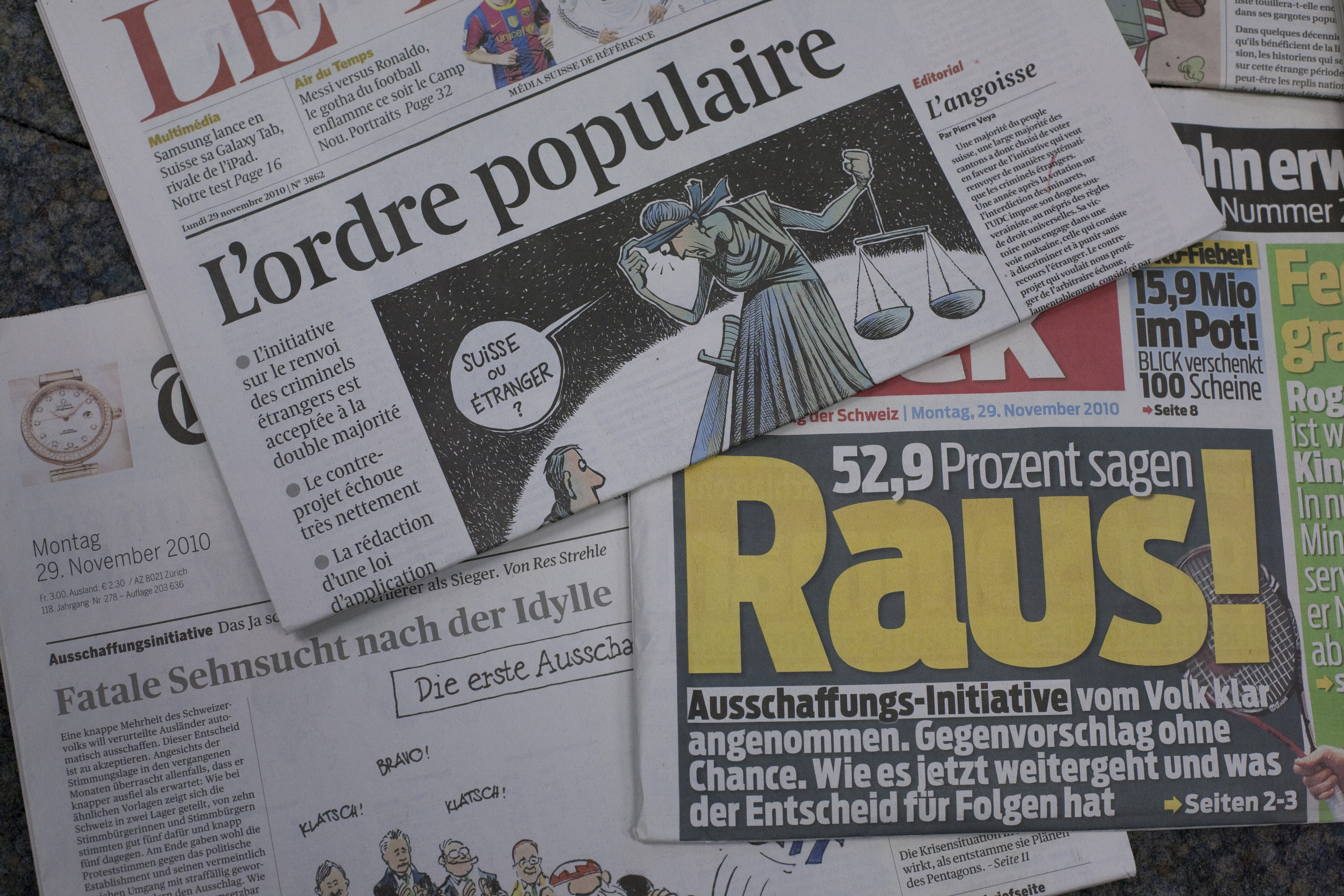
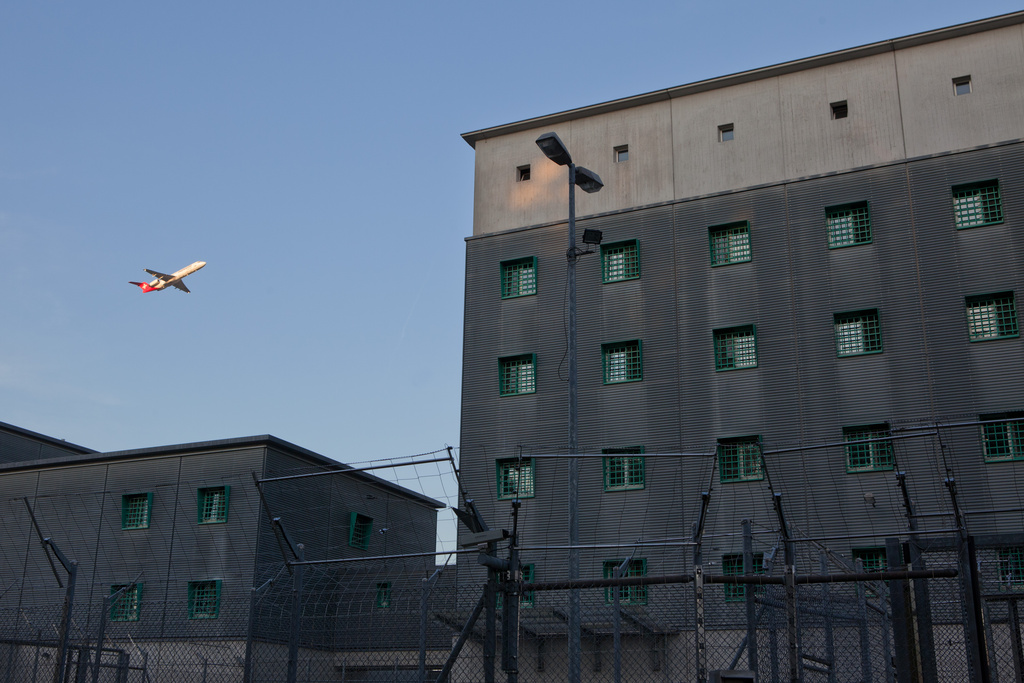
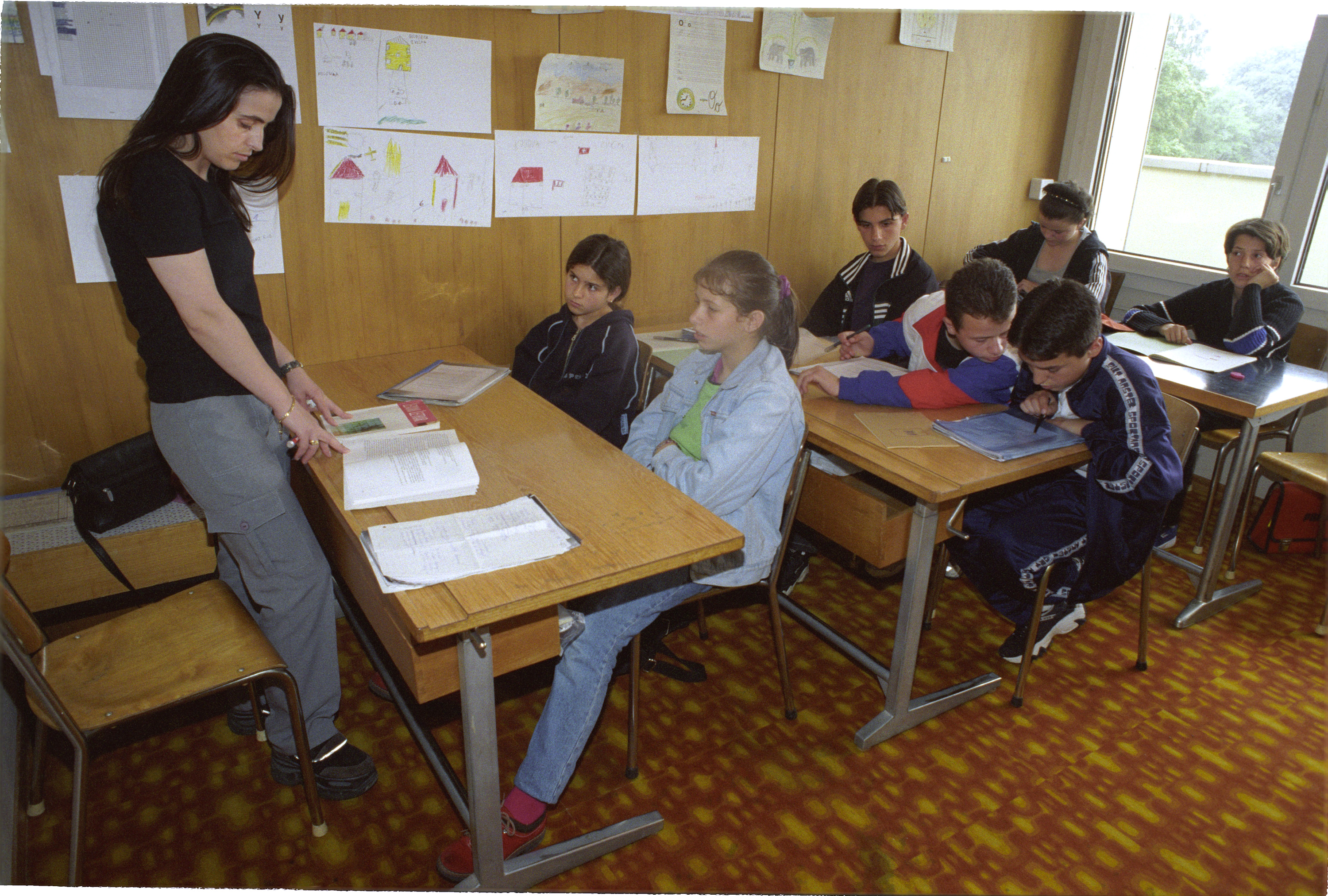
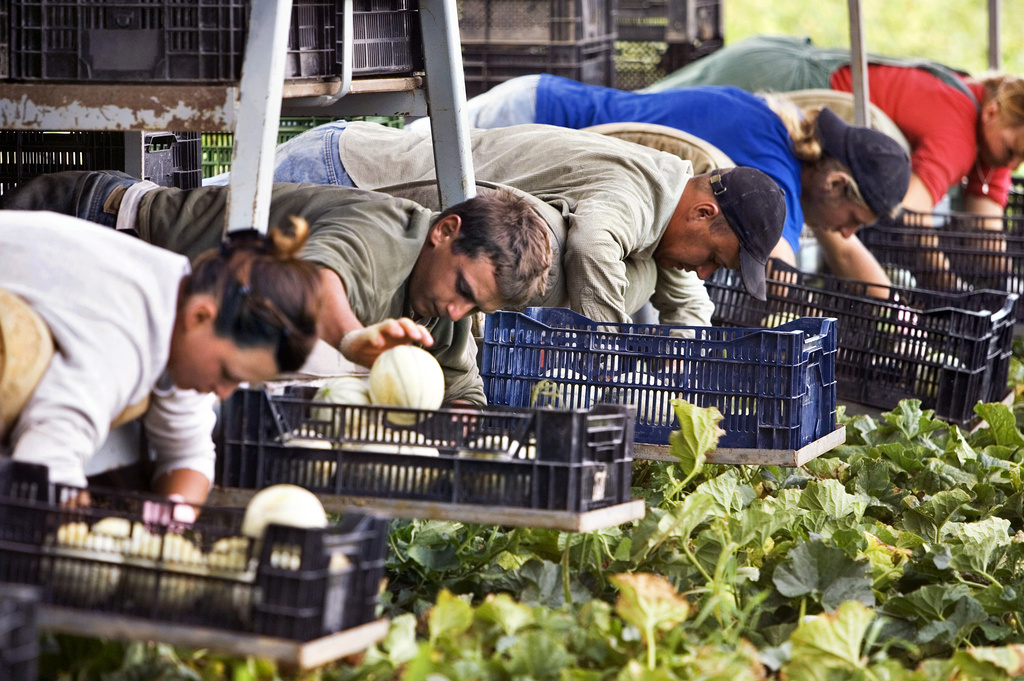
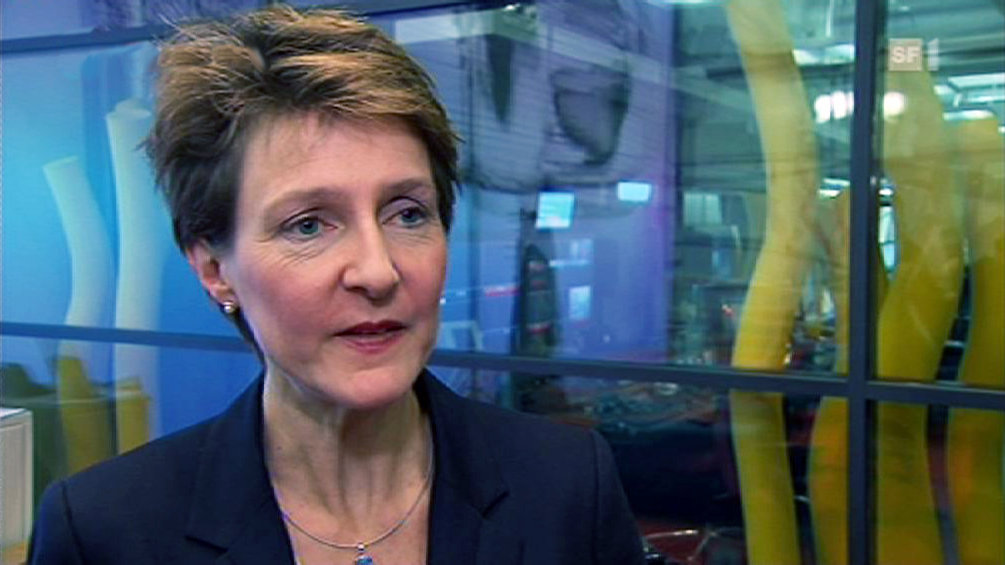
You can find an overview of ongoing debates with our journalists here. Please join us!
If you want to start a conversation about a topic raised in this article or want to report factual errors, email us at english@swissinfo.ch.